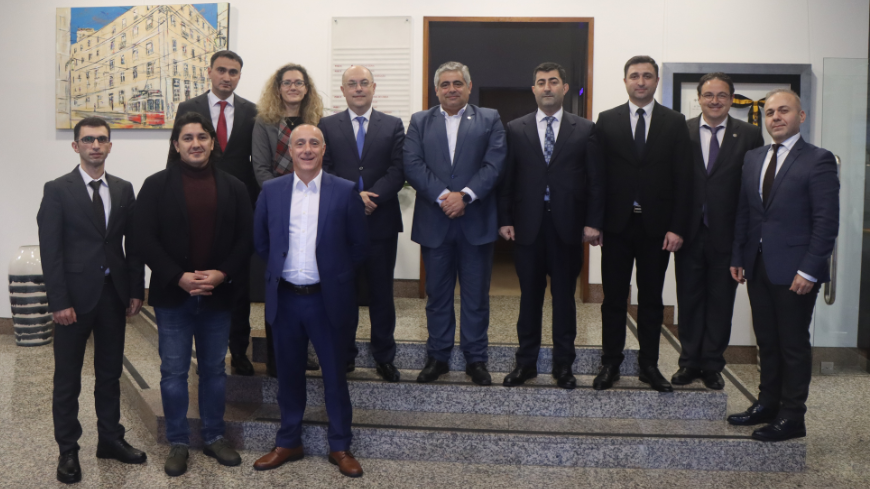On 14-16 December 2022 the European Commission for the Efficiency of Justice (CEPEJ) organised in cooperation with the Portuguese Order of solicitors and enforcement agents a three-days study visit for members of the Directorate General of Enforcement of the Ministry of Justice of Azerbaijan.
The aim of the study visit was to present and share the experience of Portugal where mixed system of enforcement has been applied while also learning more on the electronic systems used by Portuguese enforcement agents. The participants discussed the legal framework, the organization of the enforcement system and specificities of the daily work of enforcement agents, as well as on the functioning of Ovar specialised court. A visit to the data centre provided information on ICT infrastructure and resources in the enforcement process as well as in the evaluation and monitoring of the performance of enforcement agents.
This should result in further developing the legal and regulatory framework as well as institutional, functional capacity for modernisation of the current enforcement system through introduction of alternative enforcement mechanisms. Supporting the improvement of the efficiency and quality of enforcement of decisions of courts and other bodies through effective use of new ICT tools in accordance with enforcement timeframes and recovery rates indicators was also one objective of this visit.
This activity was carried out in the framework of the project "Strengthening the efficiency and quality of the judicial system in Azerbaijan", funded by the European Union and the Council of Europe and implemented by the Council of Europe in their Partnership for Good Governance II.





